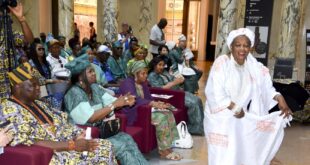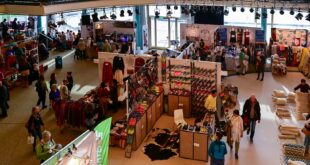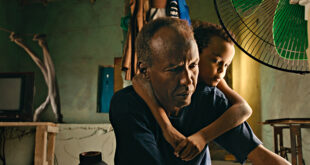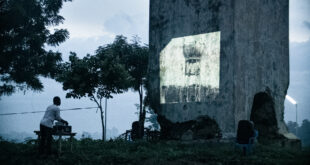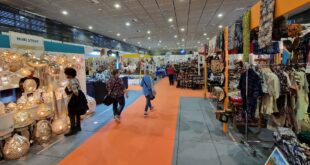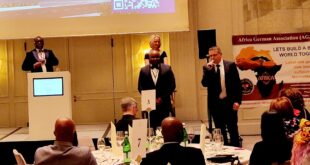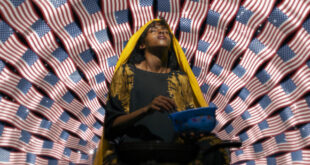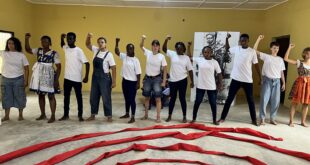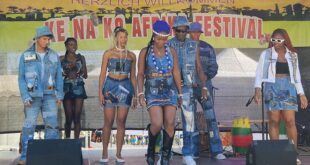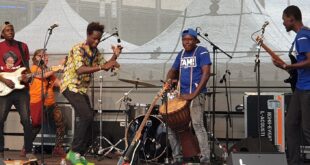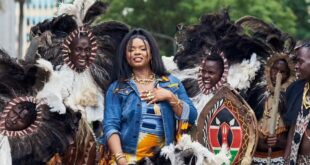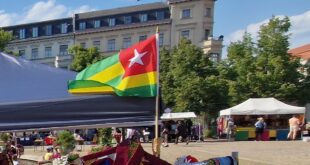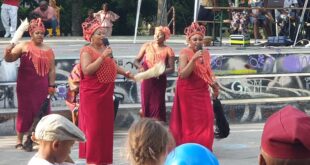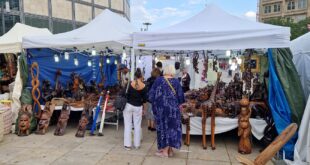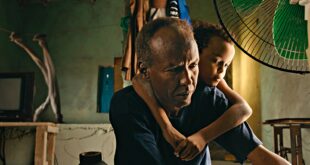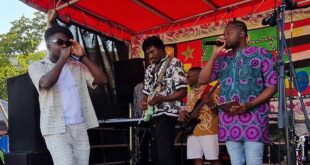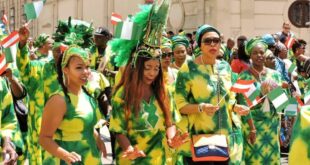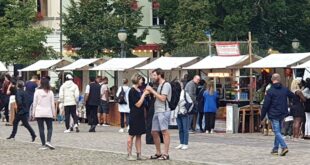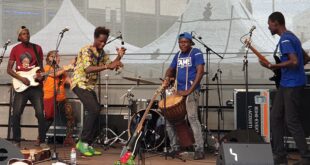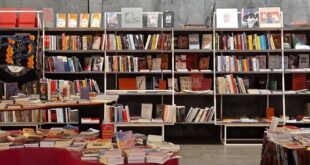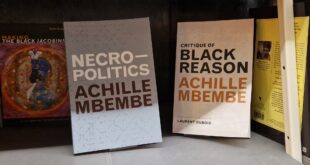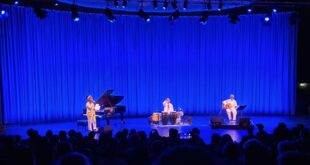Within a few years, the Sahel has become a region characterized by a dangerous entanglement of fundamentalist religion, terrorism and politics. From 13 – 19 November, the tenth edition of AFRIKAMERA – Latest Cinema from Africa presents a selection of current feature and documentary films addressing the political and societal challenges of the region in West Africa against this socio-political background in Berlin.
AFRIKAMERA 2017: Talking about Sahel opens with WÙLU, the feature film debut of French-Malian director Daouda Coulibaly (Mali/France, 2016). Twenty-year-old Ladji is a minibus driver in the Malian capital Bamako and works hard to get his sister Aminata out of prostitution. When he is denied promotion by his employers, he decides to enter the more lucrative drug business and rapidly rises in the regional drug trafficking business. But the price Ladji has to pay is high …
With CEDDO (Senegal, 1977) Senegalese legendary filmmaker Ousmane Sembène created a classic of African cinema of the 1970s. The feature film reflects on the Christianization and Islamization of West Africa in the 17th century and its after-effects – an impressive work on the appropriation of power, alienation through proselytizing and African spiritualism.

From March 2012 to January 2013, northern Mali lived under the yoke of various Islamist rebel groups. Mamadou Cissé’s impressive documentary DEVOIR DE MÉMOIRE (Mali, 2014) describes how Mali’s civilian population defends itself against the Islamists.
And the documentary SUR LA PISTE DES MANUSCRITS DE TOMBOUCTOU (Mali / France, 2014) by Jean Crépu commemorates the inhabitants of Timbuktu who, at the risk of their lives, preserved the centuries-old manuscripts of the city from being destroyed by Islamist terrorist militias.
Another theme of AFRIKAMERA at 10 is the situation of post-Gaddafi Libya. The festival will screen LIBYA IN MOTION (Libya, 2015), a selection of short films of the chaotic era created by the violent overthrow and murder of Moamar Gaddafi in 2011. Shot from 2012-2015 in Tripoli and Benghazi, the films provide intimate insights into the everyday life of a country besieged by civil war. Naziha Arebi and Muhammad Lamin, two of the directors of the project, will be present as guests at the film screening.
Altogether more than 14 feature films will be screened at the week-long festival.
Since its inception AFRIKAMERA has worked with international festivals on the African continent. As part of its 10th anniversary, the festival will also present a special program a BEST OF FESPACO 2017 – highlights of this year’s edition of the continent’s biggest film festival in Ouagadougou, Burkina Faso, and selections from the 2016 edition of JCC Festival Karthargo, Tunisia.
With AFRIKAMERA – Latest Cinema from Africa, the non-profit cultural association toucouleur e.V. using the medium of film presents to the Berlin audience the diversity of the African continent, which does not only consist of problems such as violence, diseases and natural disasters. These stereotypical images and opinions are juxtaposed with the diverse facets of everyday life in Africa and brought to life for the moviegoers.

What started as a single screening at a cinema ten years ago has grown to become an important meeting place in Europe for African filmmakers and their followers.
It’s also a chance for newcomers to discover a new kind of cinema. “Our goal is to reach the German public and audiences who have maybe never seen African films,” says Afrikamera’s festival director, Moussa Sawadogo, who previously worked at FESPACO.
When Moussa met Koffi at a German language course, neither thought that ten years later they would be screening African cinema in one of Berlin’s leading venues. Yet both he and Ivorian Koffi Kan Kra, together with local colleagues Florian Wachinger and Uta Rügner, have done precisely that.
AFRIKAMERA sees itself as a permanent platform of dialogue between African filmmakers and the Berlin public and as a place of exchange between filmmakers, producers and distributors.
With annual, thematic emphases, the festival deals with issues that are engaging young filmmakers and filmmakers of the post-independence generation of Africa.
Femi Awoniyi
AFRIKAMERA 2017
Date: 13 – 19 November
Venue: Kino Arsenal, Postdamerstr. 2, 10785 Berlin
For the full programme of AFRIKAMERA 2017, visit: http://www.afrikamera.de
 THE AFRICAN COURIER. Reporting Africa and its Diaspora! The African Courier is an international magazine published in Germany to report on Africa and the Diaspora African experience. The first issue of the bimonthly magazine appeared on the newsstands on 15 February 1998. The African Courier is a communication forum for European-African political, economic and cultural exchanges, and a voice for Africa in Europe.
THE AFRICAN COURIER. Reporting Africa and its Diaspora! The African Courier is an international magazine published in Germany to report on Africa and the Diaspora African experience. The first issue of the bimonthly magazine appeared on the newsstands on 15 February 1998. The African Courier is a communication forum for European-African political, economic and cultural exchanges, and a voice for Africa in Europe.





